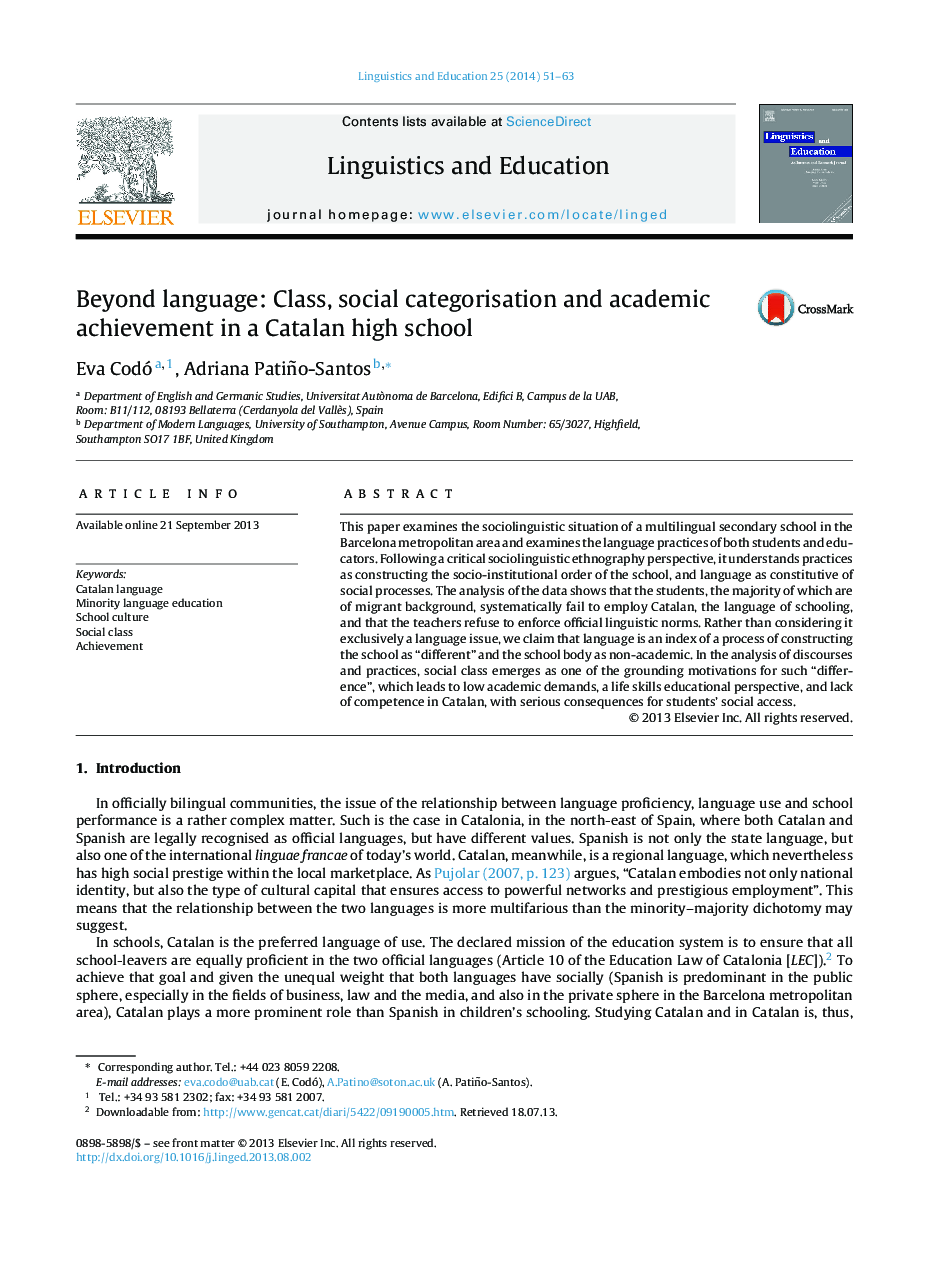| Article ID | Journal | Published Year | Pages | File Type |
|---|---|---|---|---|
| 366155 | Linguistics and Education | 2014 | 13 Pages |
•Absence of Catalan (official language of schooling) in a high school in Barcelona.•Spanish is the social and academic lingua franca inside and outside the classroom.•Students’ non-use of Catalan indexes broader educational processes.•Self-categorisation as different explains the subversion of the school culture.•Class emerges as a key rationale for not prioritising competence in Catalan.
This paper examines the sociolinguistic situation of a multilingual secondary school in the Barcelona metropolitan area and examines the language practices of both students and educators. Following a critical sociolinguistic ethnography perspective, it understands practices as constructing the socio-institutional order of the school, and language as constitutive of social processes. The analysis of the data shows that the students, the majority of which are of migrant background, systematically fail to employ Catalan, the language of schooling, and that the teachers refuse to enforce official linguistic norms. Rather than considering it exclusively a language issue, we claim that language is an index of a process of constructing the school as “different” and the school body as non-academic. In the analysis of discourses and practices, social class emerges as one of the grounding motivations for such “difference”, which leads to low academic demands, a life skills educational perspective, and lack of competence in Catalan, with serious consequences for students’ social access.
